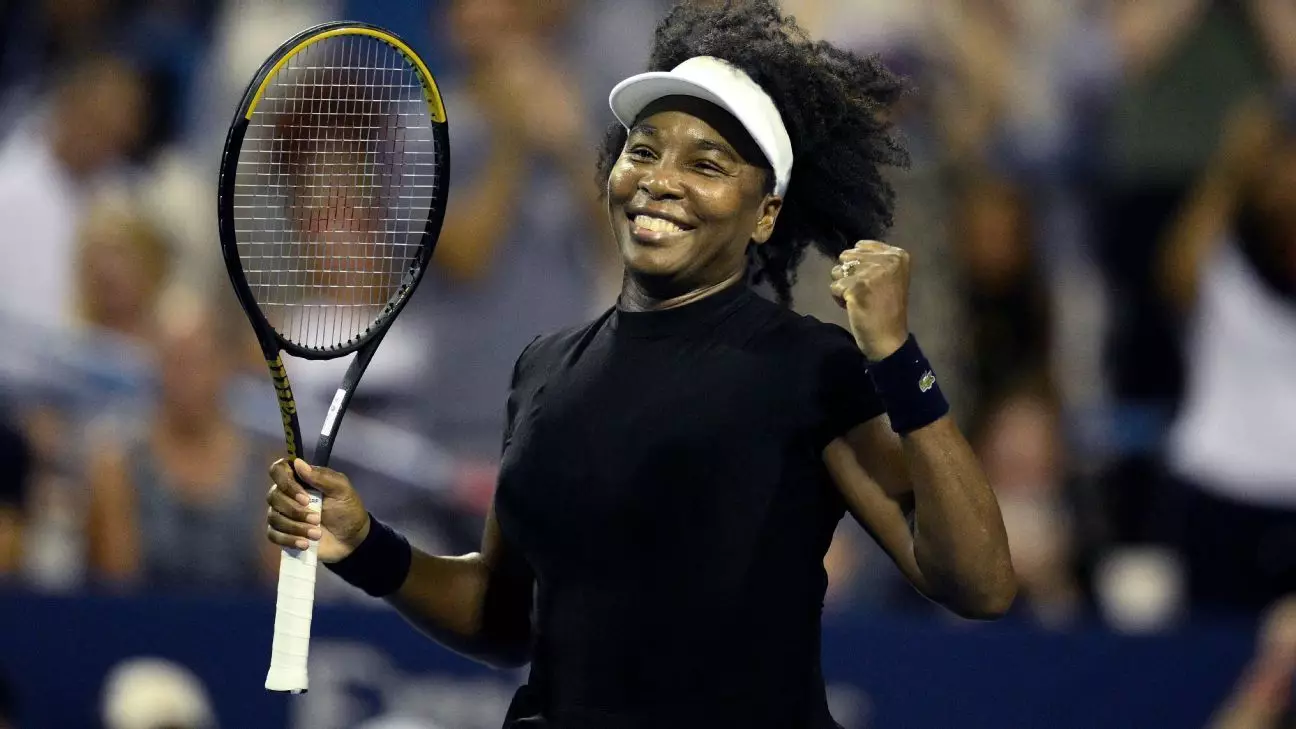Venus Williams’ recent victory at the DC Open is more than just a tennis win; it is a testament to the unbreakable spirit of a true icon in a sport often dictated by youth and mid-career bursts. At 45, she showcased that age, while a formidable barrier, can be overcome with raw talent, relentless determination, and an unwavering love for the game. Her triumph, making her the second-oldest woman to win a singles match at the professional level, challenges the prevailing narrative that athletic longevity is reserved solely for the young. It confronts critics and skeptics who often dismiss veteran athletes as past their prime, asserting instead that perseverance and passion can carve paths unconventional to societal expectations.
Challenging Societal Norms and Expectations
In a broader societal context, Venus’s performance embodies the essence of breaking norms. The narrative that aging diminishes capability is deeply ingrained, often used to marginalize women in sports and beyond. Yet, Williams’s resilience shatters these stereotypes, encouraging a message that prioritizes capability over chronological age. Her return speaks to a liberating truth: society should elevate values like perseverance, experience, and dedication rather than succumb to superficial notions of decline. It’s a powerful reminder that age is often just a number—one that should not serve as an excuse to limit aspirations. Williams’s victory becomes a symbol of hope and challenge to the status quo. It invites us to rethink how society perceives aging, especially for women who are frequently subjected to harsher scrutiny and stereotypes.
The Complex Interplay of Personal Health and Public Expectations
Williams’s journey back to the court was undoubtedly hindered by health issues—having undergone surgery to remove uterine fibroids—and the silence of her prolonged absence amplified public curiosity and skepticism about her return. While detractors may latch onto her time away from competitive play as proof of decline, her resurgence reveals the importance of resilience not just on the court, but within oneself. It underscores a critical conversation about the challenges women face when balancing health, personal life, and career, especially within a system that often marginalizes their reproductive and health-related struggles. Her comeback is not merely a sports achievement but a statement on the importance of support structures, healthcare, and societal understanding that allow women to thrive beyond traditional limitations.
A Subtle Rejection of Youth-Centric Sports Culture
Tennis, like many elite sports, venerates youth and physical peak performance—yet Venus Williams’s victory quietly undermines this culture. Her appearance, filled with moments of nostalgia—power serves, quick reactions, and moments of vulnerability—serves as a subtle yet powerful critique. She embodies experience and resilience, qualities often undervalued in an ageist sports culture that idolizes fleeting physical prowess. Her performance doesn’t just say that she can still compete; it suggests that the narrative of aging as inherently inferior is flawed. Her success is a call to reframe athletic achievement as a broad spectrum that encompasses experience, mental fortitude, and craftsmanship, not just youthful vigor.
Challenging the Status Quo and Inspiring Broader Change
Venus Williams’s recent triumph extends beyond the tennis court. It serves as an inspiration for societal change—affirming that perseverance is universal and that greatness does not expire on a predetermined expiration date. Her story invites us to question the superficial validity placed on youthfulness and immediate physicality. It advocates for a more inclusive perception of human potential, especially for women who have long been marginalized due to ageism and gender stereotypes. With her resilience, she is pushing the boundaries of what society expects from women in their mid-40s and beyond, urging a reevaluation of how achievement is measured and celebrated at every stage of life.
Her victory is a testament to a broader truth: resilience, experience, and unwavering commitment can defy even society’s most entrenched stereotypes. It’s a challenge to the societal tendency to dismiss, undervalue, or marginalize those who do not conform to youth-centric ideals—a reminder that greatness is often rooted in perseverance and passion, not just in the fleeting bloom of youth.


Leave a Reply